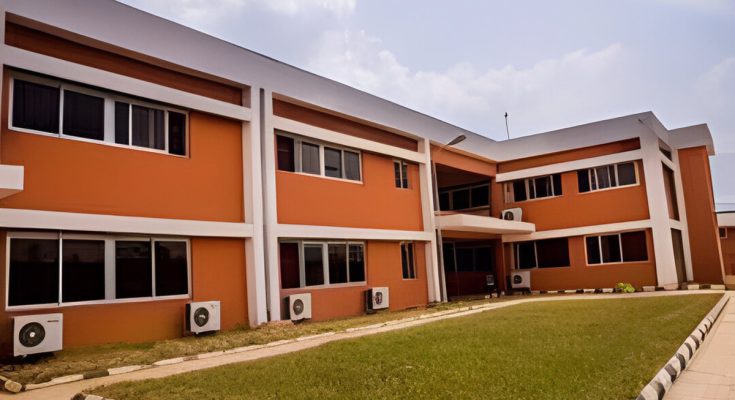Sixty-nine out of the 310 graduating students of Abiola Ajimobi Technical University, (AATU) Ibadan bagged First class Honours in Natural and Applied Sciences and various fields of Engineering studies as Abiola Ajimobi Technical University holds a combined Convocation ceremony in Ibadan tomorrow (Friday).
The Vice-Chancellor of the University, Adesola Ajayi disclosed this at the pre-convocation press conference at the University campus along the Lagos-Ibadan expressway, Ibadan on Thursday.
He said the combined Convocation ceremony covers 2022/2023 and 2023/2024 academic sessions.
Adenola added that in 2022/2023 academic session, 15 students from Faculty of Natural and Applied Sciences graduated with First-class Honours, 32 students Second Upper Division, 12 students with the Second class lower Division and four students with the third class.
Faculty Engineering Thirty-two students graduated with Second class Upper Division, 12 students with 2nd class lower Division and four with a third class in the Faculty of Natural and Applied Sciences in 2022/2023 Academic session.
In the same academic session, the Vice-chancellor stated that 17 students came out with First-class Honours, 42 students with Second-class Upper Division, 16 students with Third class and two students graduated with ordinary pass in the Faculty of Engineering.
In the 2023/2024 academic session, 13 students graduated with First class Honours, 30 students with Second class Upper Division, 23 students with Second class lower Division and two students with ordinary Pass in the Faculty of Natural and Applied Sciences.
The Faculty of Engineering during the same period produced 24 First Class Honours, 46 Second class-lower Division, 20 falls in the Second class lower Division and 9 graduated with third class.
The Vice-Chancellor added that aside from the awards of degrees, the graduating students are being awarded with Diploma in French studies and Certificate in Vocational Training.
This according to him, is aimed at preparing them for future challenges.
There is no going back on Vocational training. There’s no alternative to it. Indeed, every institution in Nigeria today has keyed in into the issue of vocational.
“I want to say that Technical University has made some strides here. I will give an example. Some states in Germany are in discussion with agencies in Nigeria by way of skilled migration.
“Technical University is one of the institutions that have supported this. We’ve been in several discussions with the German Consulate in Lagos, with the GIZ. And they’re looking up to us to be able to provide skilled workers.
“Coca-Cola has approached us. Dangote Agrochemicals has approached us, among other ones, to say we should give them right of first refusal in offering jobs to our graduates. And over the last two days, I’ve also been in meetings with several other ICT-related companies.
“We’ve had Memorandum of Understanding (MOUs) that have come here, and they are providing. So all institutions have recognized the fact that society is not placing so much emphasis on the paper certificate as to what you can do. And Technical University has taken the lead in this area.
“Indeed, at the level of NUC, at the level of governments, and regulatory agencies, the issue of vocational activity has been put to the front burner. For example, as part of the funding mechanism in TEDFund, it is now mandatory for each institution to have what they call a career services centre. And everything is geared towards employability.
“I think in other climes they would call it that terminology. Vocational activity is also called employability skills, except that employability skill is much wider, because it involves things like even how you present yourself, your CV, your confidence, your boldness in articulation. So there is no going back on the issue of technical and vocational.
“The only thing that we are trying to do is we want to strike a balance between making an artisan out of our graduates, that we don’t turn them into artisans, but that we are inculcating in them not only vocational activities in terms of what they can do with their hands, but also in terms of how to identify opportunities, how to utilize these opportunities, and how to leave a legacy of impact through this.”
READ MORE FROM: NIGERIAN TRIBUNE







